Steve Rogers’ journey from a scrawny kid in Brooklyn to Marvel’s moral compass spans over 80 years of comic book history. While initially conceived as a straightforward propaganda tool during World War II, Captain America evolved into a complex hero who represents not blind patriotism but the challenging ideals America strives to embody. As such, his best comic book stories often wrestle with what it means to be a patriot when your country’s actions conflict with its stated values. In addition, Steve has remained one of the quintessential Marvel characters only because he’s no longer a soldier following orders but a hero willing to do the right thing, even against the law and his teammates.
Videos by ComicBook.com
Captain America’s transformation is particularly relevant today, as the MCU has chosen to draw from some of the best comic books to turn Chris Evan’s Steve Rogers into a beacon of hope beyond frontiers. The impact of Evan’s character was so significant that the MCU continues to explore Steve Rogers’ legacy through Sam Wilson’s (Anthony Mackie) Captain America. As we look back at the comic book history that shaped both these heroes, here are the five most significant Captain America story arcs, ranked from great to absolutely essential.
5. Man Without a Country (Captain America #451-453)
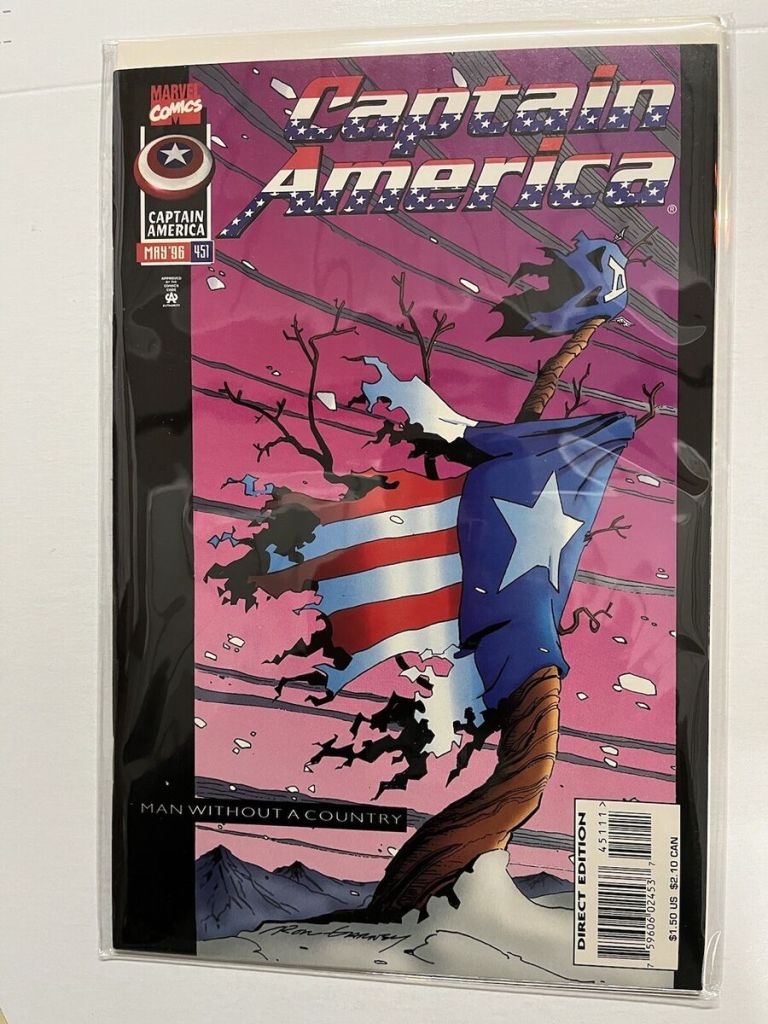
Mark Waid’s thought-provoking storyline strips Steve Rogers of his most fundamental identity – his American citizenship. When the U.S. government declares Cap a man without a country, he faces a crisis that cuts to the core of his being: can you embody American ideals while being rejected by America itself?
The arc forces Rogers to confront what patriotism truly means when separated from nationalism. Without official backing, he continues fighting for justice and freedom, proving that his commitment to American values transcends any government decree. This exploration of principled resistance versus blind loyalty remains startlingly relevant today, especially as the MCU continues to explore similar themes, from Captain America: Civil War to John Walker (Wyatt Russell) in The Falcon and the Winter Soldier.
4. Captain America: Reborn (Captain America #605-610)
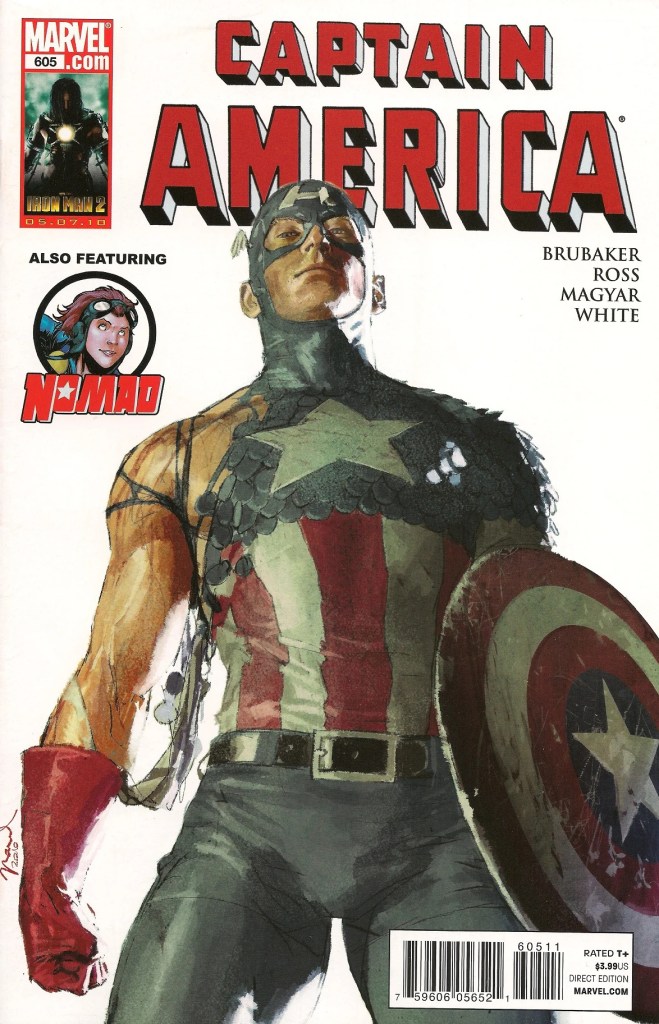
Ed Brubaker’s “Reborn” storyline tackles the impossible task of bringing Steve Rogers back from the dead without diminishing the impact of his sacrifice. After being seemingly killed by a time-displaced bullet, Rogers finds himself unstuck in time, reliving pivotal moments in American history. This creative approach allows the narrative to explore the weight of Rogers’ legacy while avoiding the typical superhero death-and-return tropes.
Furthermore, the story masterfully examines how the Marvel Universe changed during Cap’s absence, mainly through Bucky Barnes’ tenure as Captain America. The MCU hasn’t directly adapted this storyline. Yet, its themes of legacy and succession echo throughout The Falcon and the Winter Soldier, particularly in how Sam Wilson must grapple with the responsibility of the shield.
3. Nomad Arc (Captain America #180-184)
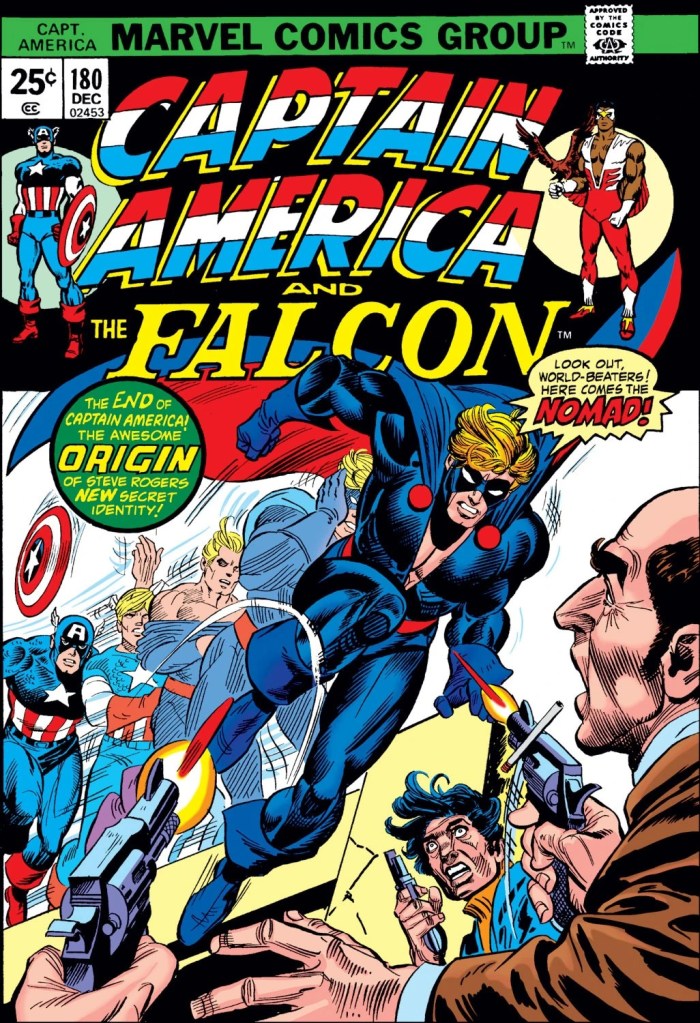
In one of Marvel’s boldest moves, Steve Rogers abandons his Captain America identity after discovering that high-ranking government officials were part of a terrorist organization called the Secret Empire. The arc shows Rogers creating the Nomad persona — “the man without a country” — allowing him to fight for justice while processing his disillusionment with American leadership.
This storyline’s influence ripples through modern Marvel storytelling, most notably in how Captain America quits the Avengers at the end of Captain America: Civil War, forging his own group of ragtag heroes to defend those in need without the constraints of government surveillance. The Nomad arc proves that true patriotism sometimes means standing against corrupt institutions rather than blindly supporting them, an important political lesson that would be key to reinventing Captain America for modern audiences.
2. Secret Empire (Captain America #169-175)
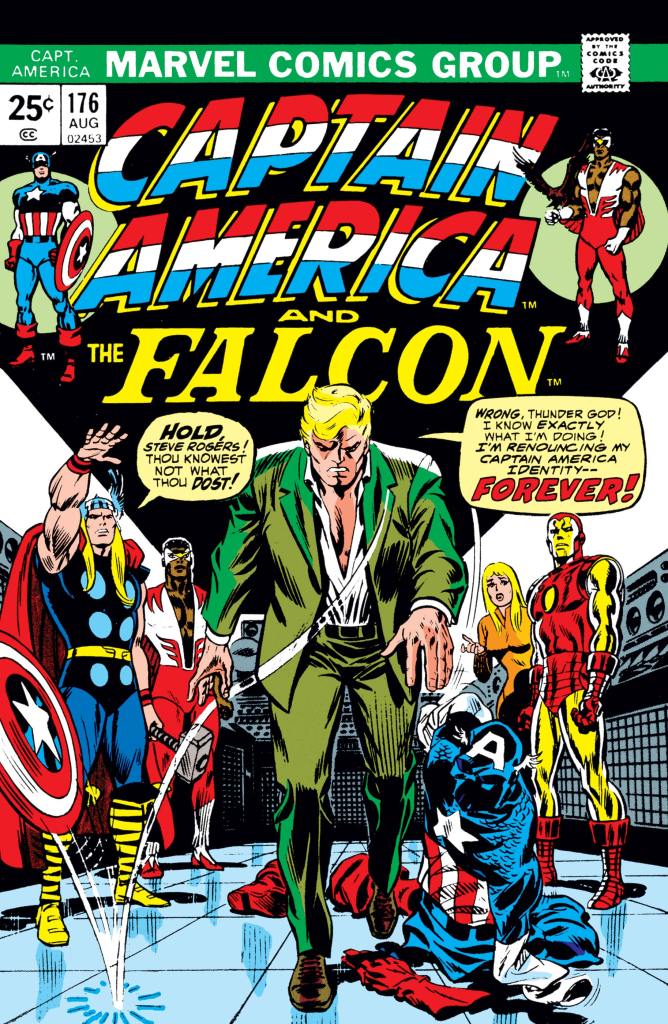
This 1974 storyline boldly parallels the Watergate scandal, presenting a story where Captain America uncovers corruption at the highest levels of government. The narrative culminates in a confrontation at the White House itself, forcing Rogers to face the gap between American ideals and American reality. Steve Englehart’s writing makes the political commentary impossible to ignore, establishing Captain America as a character willing to speak truth to power.
While other Captain America stories had political undertones, “Secret Empire” was the first to tackle contemporary political scandals directly. The storyline proved so controversial that Marvel initially tried to distance itself from the obvious Watergate parallels. However, time has vindicated Englehart’s creative choices, with the MCU partly adapting this storyline in Captain America: The Winter Soldier, where Steve discovers HYDRA has infiltrated S.H.I.E.L.D. The film captures the same spirit of institutional betrayal, leading Rogers to destroy the very organization he once served.
1. Captain America: The Winter Soldier (Captain America Vol. 5 #1-9, 11-14)
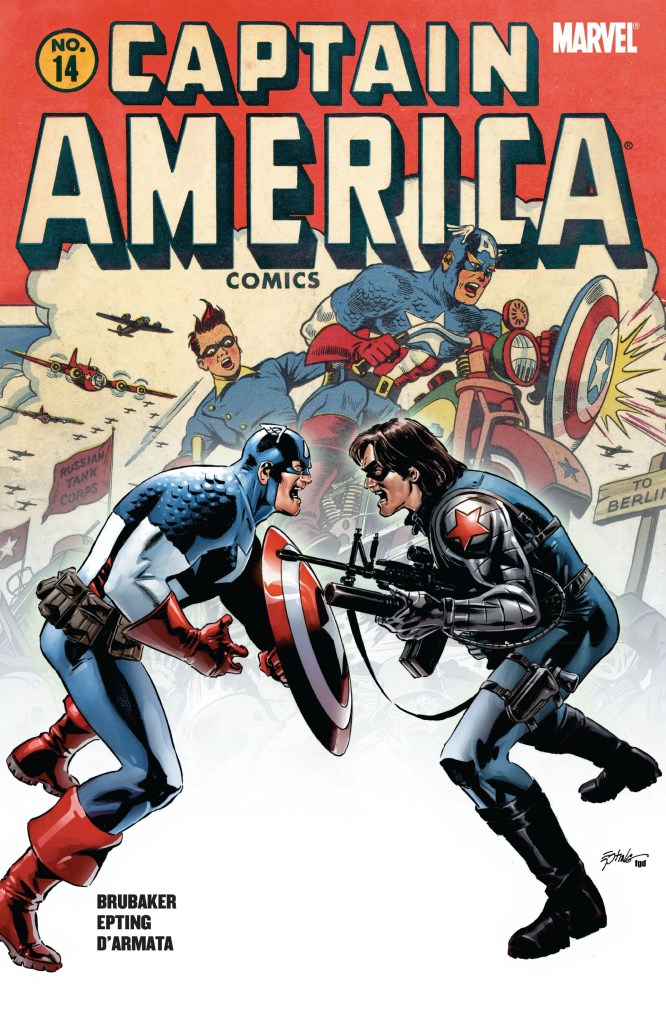
Ed Brubaker’s masterpiece didn’t just resurrect Bucky Barnes. It transformed Captain America’s entire mythology. The revelation that Bucky survived his apparent death, only to be warped into a Soviet assassin, forces Steve to confront both personal guilt and Cold War legacy. Because of that, the storyline brilliantly weaves espionage thriller elements with emotional depth, creating a perfect modern Captain America story.
This arc’s influence on the MCU cannot be overstated. Captain America: The Winter Soldier adapts its core elements into one of Marvel Studios’ most acclaimed films, establishing the grounded, political thriller tone defining Captain America‘s franchise. Plus, the comic’s exploration of friendship, loyalty, and redemption provides the emotional foundation for Bucky’s (Sebastian Stan) arc throughout the MCU, culminating in his journey to find peace in The Falcon and the Winter Soldier.








